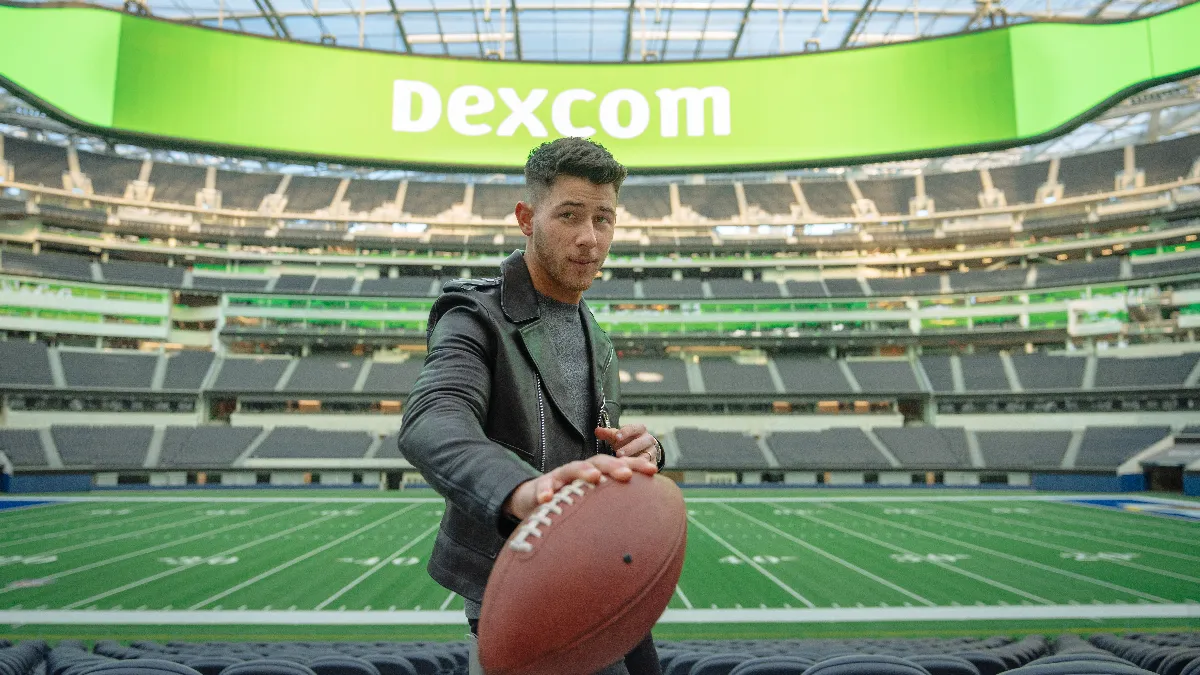Continuous glucose monitor and insulin pump makers continued their 2021 success last quarter while other medtechs were forced to manage through a pandemic spike that dragged third-quarter results.
Dexcom, Tandem Diabetes Care and Insulet grew users and revenues or sales amid the ongoing jump in use of wearables and digital health services. The success for diabetes tech comes as the space still has highly anticipated product launches on the horizon, including Dexcom's G7 CGM system and Insulet's Omnipod 5 insulin pump.
Dexcom CEO Kevin Sayer told investors that the G7 system is still on track for a 2021 CE mark clearance in Europe, setting the company up for a fourth-quarter launch. The CEO added that the company expects to submit its 510(k) application with the FDA in the next few weeks for the G7 hardware and software for both Android and iPhone systems.
"G7 is on schedule, and it's coming," Sayer said during an Oct. 28 earnings call. "All of the efforts related to G7 are moving at a frenetic pace around here."
J.P. Morgan analysts wrote that the system's FDA application will be submitted as an integrated CGM 510(k), meaning the product "will be reviewed under the 90-day decision policy, which points to a US launch likely in late 1Q/early 2Q" of 2022.
Investors seemed impressed with Dexcom's results and G7 update, sending shares up by nearly 9% between Oct. 28 and Wednesday.

Insulet CEO Shacey Petrovic told investors the company is still working with the FDA on review of the upcoming Omnipod 5 pump. After submitting additional information in September that was requested by the agency, Petrovic said Insulet is now in the final stage of the review.
Omnipod 5 can connect with a CGM and automatically deliver insulin doses to patients based on blood sugar readings. The product will directly challenge Tandem's Control IQ technology and Medtronic's MiniMed automated pump systems.
Analysts have hyped the latest Omnipod product as a potential market leader because it will be a wireless patch, is expected to come in at a lower price and be available to patients through the pharmacy rather than a durable medical equipment channel.
Insulet originally expected an Omnipod 5 launch in the first half of 2021, and Petrovic said in May that the company was in the final stages of the process. However, a backlog created by the pandemic and the prioritization of COVID-19 work slowed the review, as did the agency's request for more data.
Due to an approval expected later in the fourth quarter, Omnipod 5 will have a limited release this year before expanding in 2022. Although the limited launch is planned to be longer term.
"Omnipod 5 will be in a limited market release for some time," CFO Wayde McMillan said during a Nov. 4 earnings call. "We'll get some benefit from Omnipod 5 in 2022 … but we won't see a full-year impact from Omnipod 5 until 2023 and beyond."
William Blair analysts agreed that 2023 sales contributions will likely outpace any contributions in 2022, but added that the product could drive overall insulin pump adoption once it finally hits the market.
"Ultimately, we believe Omnipod 5 can meaningfully accelerate the market growth rate of insulin pumps, with the product being one of the larger beneficiaries and share-takers over the next several years," the analysts wrote.
The newest products will hit a space that has seen near-constant growth throughout the pandemic as patients have turned to wearables and digital health, with companies consistently beating internal and Wall Street expectations.
In the third quarter, Insulet and Dexcom both reported double-digit revenue growth over last year's quarter. Similarly, Tandem reported double-digit sales growth and a 43% jump in product shipments.
Meanwhile, medtech giant Abbott Laboratories has been one of the biggest beneficiaries of the diabetes tech boom. CEO Robert Ford told investors Oct. 20 the company's FreeStyle Libre CGM products brought in nearly $1 billion in sales and added roughly 200,000 new users last quarter.
Abbott's newest CGM, FreeStyle Libre 3, is currently out in Europe, but the company has not yet announced when the product will be launched in the U.S.
Diabetes tech companies kept up 2021's success in Q3
| Revenue/Sales(M) | YOY Growth | |
|---|---|---|
| Dexcom | $650.2 | 30% |
| Insulet | $275.6 | 17.8% |
| Tandem Diabetes Care | $179.6 | 45% |
SOURCE: Companies' latest earnings reports
International markets remain crucial
Both Tandem and Dexcom saw their quarters boosted by success outside of the U.S.
Tandem's international shipments increased year over year by 209% and sales increased by 189% to $46.5 million. For comparison, domestic shipments increased year over year by 10% and sales were up 24% to roughly $133 million, tempered a bit by healthcare facilities shutting down normal operations due to the delta variant surge.
One driver of international sales is the company's Control IQ technology, which connects CGMs and pumps to create an automated insulin delivery system. Control IQ was recently released in France and Germany, and CEO John Sheridan told investors the product has been gaining momentum in the new markets.
"The initial demand has been very strong, and we think we've got a long runway there for success," Sheridan said during a Nov. 3 earnings call. "I would say that the excitement that we've seen here in the U.S. is being replicated [outside the U.S.]"
International expansion will also be a key priority for the company going forward. According to Sheridan, Tandem plans to expand into 15 new territories in the near term, which would increase the number of territories the company operates in from 95 to 110.
Dexcom similarly saw a stronger growth rate outside the U.S. than domestically. International sales totaled $160.6 million in the quarter, up year over year by 57% and 20% quarter over quarter. U.S. revenue grew year over year by 23% to about $490 million.
Insulet also saw international growth — Omnipod revenue overseas jumped by nearly 17% to $93.1 million — but executives cautioned multiple times on the company's earnings call about increased competition from automated insulin delivery systems going forward.
Danielle Antalffy, an SVB Leerink analyst, said in an emailed statement that the increased competition is largely coming from Tandem's Control IQ and Basal IQ technology, as well as from Medtronic's 780G MiniMed pump system.
"Regarding the international competitive dynamic, our sense is that the trend of below-market growth — which is notably still solidly in the double-digit range given an even lower penetration rate — should and will reverse" once Insulet releases an automated insulin delivery system to the international market, which will be Omnipod 5, SVB Leerink analysts wrote in an investor report.
Insulet's Petrovic was bullish on international expansion, despite acknowledging near-term challenges. After moving into seven new countries over the past 12 months, the CEO said that Insulet plans to expand further into specific geographies as well as increase global manufacturing capabilities.
"Our near-term focus is on growing our global presence throughout the Middle East and Europe, and over the medium term, we plan to expand further within the Asia Pac region," Petrovic said.

















